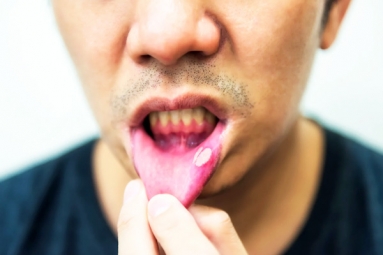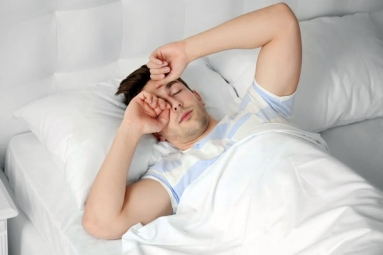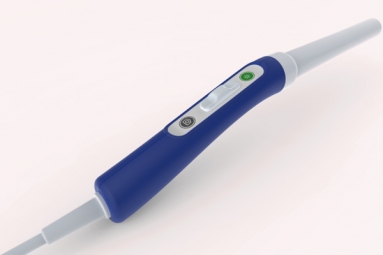
(Image source from: Canva.com)
When we consider cervical cancer, we usually think of it affecting women. However, the virus causing it, known as Human Papillomavirus (HPV), affects everyone. It is one of the most widespread sexually transmitted infections in the world. Even though women are often screened and receive vaccinations, men are frequently ignored in discussions about HPV. The World Health Organization (WHO) states that almost every person who is sexually active will encounter HPV at some time in their lives. Although many HPV infections go away by themselves, certain high-risk types can result in various cancers, including not just cervical cancer but also cancers of the penis, anus, and throat in men. In India, where cervical cancer is the second most common cancer among women, health professionals are urging for a strong effort to vaccinate boys against HPV. Dr Archit Pandit, who directs Surgical Oncology at Fortis Escorts Heart Institute in New Delhi, mentions, "The idea that only women should get the HPV vaccine must change. Protecting against HPV should be viewed as essential for everyone in preventing cancer."
Dr Pandit further clarifies that people often connect the HPV vaccine to cervical cancer in women only. However, HPV is not limited to one gender, and neither should its prevention focus solely on women. The same virus can lead to cancers in men’s penises, anuses, and throats, along with causing genital warts. He notes that men often carry HPV without showing any signs, which means they can unknowingly pass it on to their partners. This undisclosed spread contributes to the infection's growth in communities. A WHO report from 2023 on HPV noted that high-risk types like HPV-16 and HPV-18 account for more than 70% of cervical cancers, but these same types also cause almost 90% of anal cancers and 60% of throat cancers in men. Dr Pandit emphasizes, "Vaccinating boys and young men not only protects them from cancers linked to HPV but also helps lower the virus spread in the community."
Research from around the world backs this strategy. The Centers for Disease Control and Prevention (CDC) and WHO suggest regular HPV vaccination for both boys and girls between ages 9 and 14. Countries like Australia, the UK, and Canada, which have implemented vaccinations for both genders, have noticed a considerable drop in HPV rates among both men and women. For example, Australia is expected to be the first nation to stop cervical cancer as a public health issue by 2035, mainly due to its early, inclusive vaccination programs. Dr Pandit explains, "There are two primary types of HPV vaccines now available: the quadrivalent vaccine (which protects against HPV types 6, 11, 16, and 18) and the nonavalent vaccine (which covers nine high-risk types like 16, 18, 31, 33, 45, 52, and 58)." For children aged 9 to 14 years, two doses are suggested, spaced six months apart. For individuals aged 15 to 26 years, a three-dose schedule is required at 0, 1-2, and 6 months. He adds, "Both vaccines are safe, easy for patients to handle, and very effective in stopping cancers related to HPV."
In India, the Cervavac vaccine, created by the Serum Institute of India, has made it easier and cheaper to prevent HPV. While it was initially aimed at girls, experts believe that including boys in this program could greatly improve public health.
Signs of cancers related to HPV in men:
Cancers associated with HPV can appear many years after someone is infected, which makes it tricky to notice early symptoms. According to the Indian Council of Medical Research (ICMR) and cancer doctors, some signs to watch for in men are:
Ongoing sores or growths in the genital or anal areas
Swelling, pain, or bleeding around the anus or penis
Trouble swallowing or a constant sore throat (related to oropharyngeal cancers)
Enlarged lymph nodes or unusual tiredness.
Since HPV infections often do not show any symptoms, getting vaccinated is the best way to prevent it, together with safe sex practices and regular medical check-ups.
The knowledge gap in India:
Even though experts agree on the importance of HPV vaccination, very few boys in India are getting it. Dr Pandit emphasizes, "Awareness about the HPV vaccine for boys in India is very low." The wrong idea that it is only for girls needs to change. A survey done in 2022 by the Indian Journal of Community Medicine showed that just 18% of parents knew boys could get the HPV vaccine. There is increasing awareness in urban areas through social media and health programs, but rural and semi-urban areas are still behind.
Experts suggest that vaccination campaigns in schools, like those for other childhood vaccines, could help address this issue. Dr Pandit says, "For parents, it is clear that the HPV vaccine is just as crucial as any other childhood vaccine."
HPV does not discriminate based on gender, and neither should our prevention efforts. By vaccinating both boys and girls, India can greatly lessen the impact of HPV-related cancers. Public health professionals believe that the solution lies in providing vaccinations for everyone, raising awareness, and promoting early prevention. As Dr Pandit sums up, "It is possible to eliminate cancers caused by HPV, but this can only happen if both men and women receive equal protection." The HPV vaccine, much like vaccines for polio or hepatitis, is about more than just personal safety. It is a vital resource for community health. The sooner India adopts this approach, the closer we will get to eliminating all related cancers.










